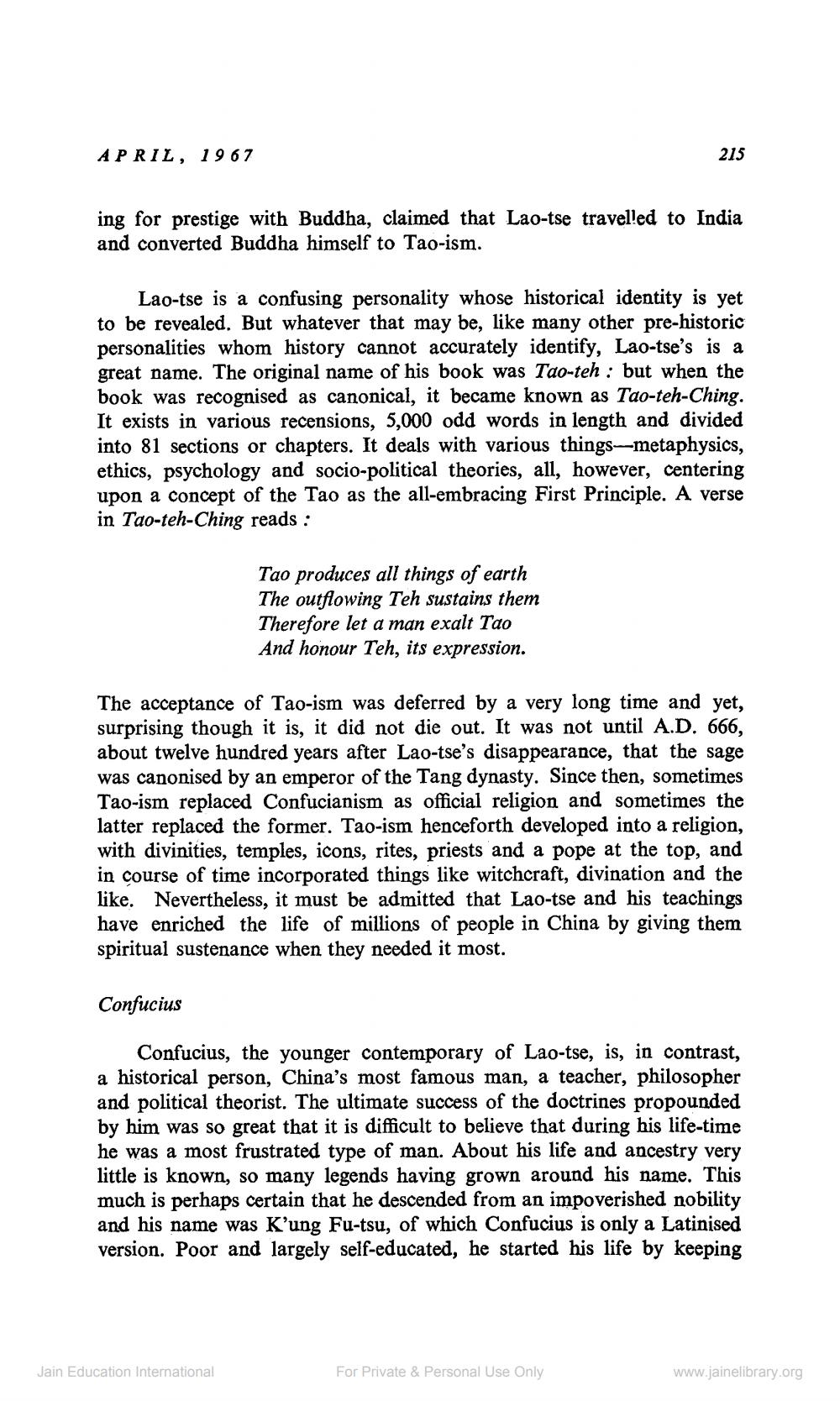________________
APRIL, 1967
215
ing for prestige with Buddha, claimed that Lao-tse travelled to India and converted Buddha himself to Tao-ism.
Lao-tse is a confusing personality whose historical identity is yet to be revealed. But whatever that may be, like many other pre-historic personalities whom history cannot accurately identify, Lao-tse's is a great name. The original name of his book was Tao-teh : but when the book was recognised as canonical, it became known as Tao-teh-Ching. It exists in various recensions, 5,000 odd words in length and divided into 81 sections or chapters. It deals with various things--metaphysics, ethics, psychology and socio-political theories, all, however, centering upon a concept of the Tao as the all-embracing First Principle. A verse in Tao-teh-Ching reads :
Tao produces all things of earth The outflowing Teh sustains them Therefore let a man exalt Tao And honour Teh, its expression.
The acceptance of Tao-ism was deferred by a very long time and yet, surprising though it is, it did not die out. It was not until A.D. 666, about twelve hundred years after Lao-tse's disappearance, that the sage was canonised by an emperor of the Tang dynasty. Since then, sometimes Tao-ism replaced Confucianism as official religion and sometimes the latter replaced the former. Tao-ism henceforth developed into a religion, with divinities, temples, icons, rites, priests and a pope at the top, and in course of time incorporated things like witchcraft, divination and the like. Nevertheless, it must be admitted that Lao-tse and his teachings have enriched the life of millions of people in China by giving them spiritual sustenance when they needed it most.
Confucius
Confucius, the younger contemporary of Lao-tse, is, in contrast, a historical person, China's most famous man, a teacher, philosopher and political theorist. The ultimate success of the doctrines propounded by him was so great that it is difficult to believe that during his life-time he was a most frustrated type of man. About his life and ancestry very little is known, so many legends having grown around his name. This much is perhaps certain that he descended from an impoverished nobility and his name was K’ung Fu-tsu, of which Confucius is only a Latinised version. Poor and largely self-educated, he started his life by keeping
Jain Education International
For Private & Personal Use Only
www.jainelibrary.org




